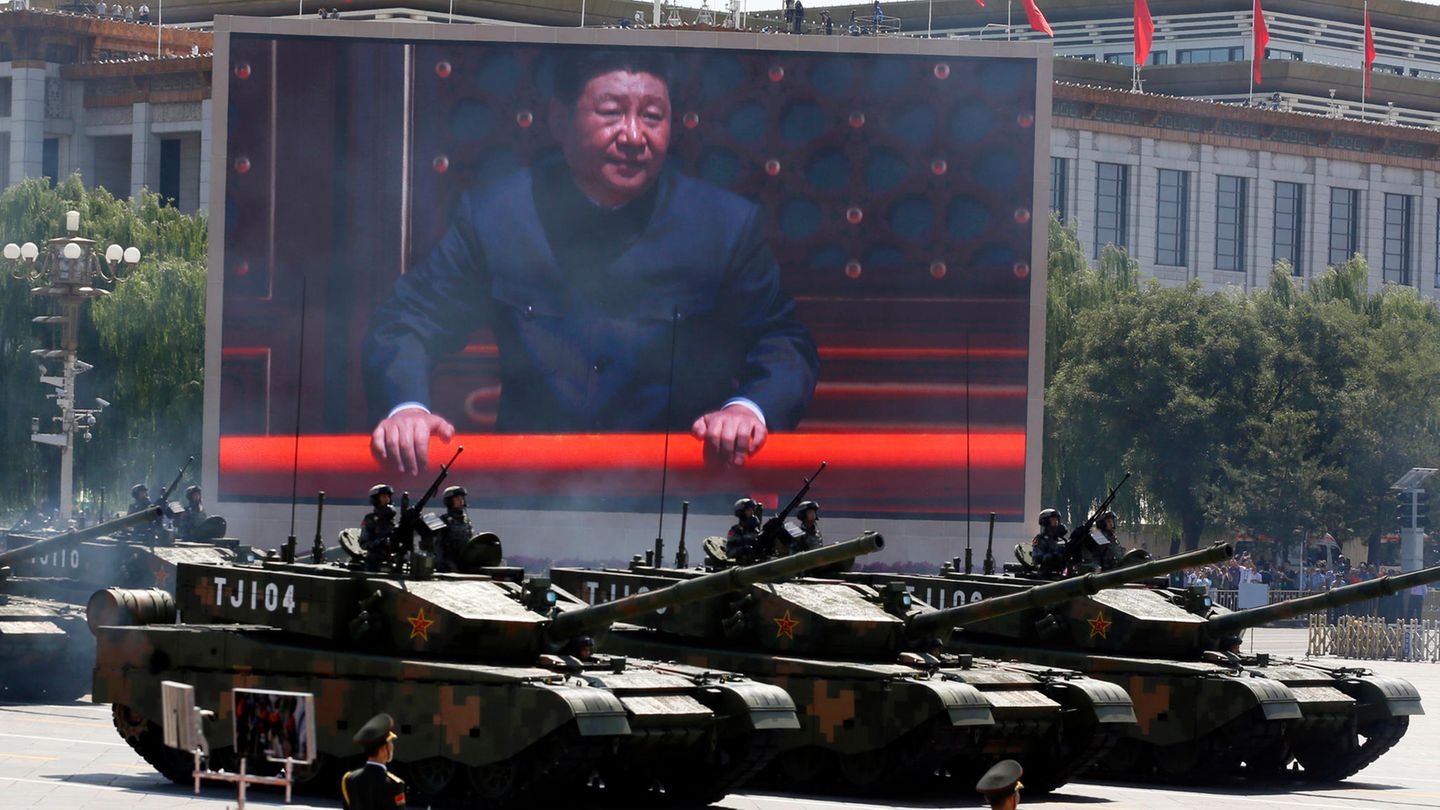Tensions between China and Taiwan are at a new high. Concerns about war are growing in Taiwan. A decree by Xi Jinping fuels fear.
Since Russian President Vladimir Putin ordered the attack on Ukraine, fears of a war in Asia have grown. More specifically, before a war between the People’s Republic of China and the island nation of Taiwan.
Communist mainland China sees democratic Taiwan, which considers itself independent and officially calls itself the Republic of China, as a breakaway province. Beijing strictly rejects the principle of a united China. China’s President Xi Jinping has repeatedly emphasized that “reunification” with Taiwan “must be achieved”.
Beijing does not shy away from harsh language, as the Chinese Defense Minister Wei Fenghe recently demonstrated. At a security conference in Singapore on Sunday, he said his country would fight “to the end against independence” for the island (Taiwan). Anyone who tried to do this “to split China will definitely not end well.”
Xi gives military more powers for ‘military operations other than war’
“We will fight at all costs and we will fight to the end,” Wei said. “No one should ever underestimate the Chinese armed forces’ determination to protect China’s territorial integrity.”
At a bilateral meeting with US Secretary of Defense Lloyd Austin on Friday, Wei had already threatened war if Taiwan declared independence. “If anyone dares to separate Taiwan from China, the Chinese army will definitely not hesitate to start a war at any cost,” Wei said, according to his spokesman.
Now a decree by Xi Jinping is causing a stir. Xi, who also chairs the country’s Central Military Commission, has signed an order setting out a series of process plans on “military operations other than war,” the state news agency reported on Monday.
New regulations nebulous
“The outline aims to protect people’s lives and property, uphold national sovereignty, security and development interests, and uphold world peace and regional stability,” according to Xinhua.
The structure, which comprises 59 articles in six chapters, serves as the legal basis for “military operations other than war” and should therefore come into force on June 15.
Xinhua does not give any further details. The English-language Staats-Zeitung writes about the decree that the outlines are “the legal basis for Chinese troops to carry out missions such as disaster relief, humanitarian aid, escort and peacekeeping”. They also aimed to “prevent and neutralize risks and challenges, manage emergencies, protect people and property”.
Experts: Xi uses similar language as Putin
China’s plans have an important role for China’s military “in fulfilling their duties and missions in the new era,” according to the state media. The organization and conduct of “military operations by the armed forces other than war” would be standardized as a result.
Such military operations include humanitarian aid, maritime escorts and peacekeeping.
But according to the Global Times, the new guidelines also stipulate that Chinese troops prevent so-called spillover effects of regional instabilities that could affect China and “secure important transport routes for strategic materials such as oil or China’s foreign investments, projects and personnel can protect”.
The term “military operations” causes a stir among experts because Putin describes the war in Ukraine as a “special operation”. In Taiwan in particular, Xi’s new decree is viewed with concern.
China is laying the groundwork for interventions, experts say
“I think it’s definitely a copy of Putin’s ‘special operations’ language,” Eugene Kuo Yujen, an analyst at the Taiwan Institute for National Policy Research, told Australian Radio. “And after what happened in Ukraine, it sends a very ominous signal to Taiwan, Japan and the surrounding countries in the South China Sea.”
“I think Xi Jinping is trying to increase China’s activities in the gray area,” Kuo said, referring to actions that harm other states but do not fall under the definition of war.
Wu Qiang, an independent analyst in Beijing, also sees parallels to Vladimir Putin’s language and territorial claims on Ukraine, telling ABC: “The way Beijing sees it, any future mission to unify Taiwan would be just a continuation of the unfinished civil war of 1949.” It is therefore a matter of not defining a future military intervention in Taiwan as a “military operation”. The new guidelines would create a basis for China to intervene in other countries – including militarily.
Tensions between US and China
The new guidelines from Beijing come at a time when tensions between China and the United States are already growing. US Secretary of Defense Austin accused China on Saturday of stepping up its “provocative and destabilizing military activities” near Taiwan. As an example, he cited a record number of Chinese military planes penetrating Taiwan’s Air Defense Zone (ADIZ) “almost daily” in the past few months.
US President Joe Biden pledged military support to Taiwan in May in the event of a Chinese invasion, sparking outrage in Beijing. The White House has since qualified the statement several times, insisting that its policy of “strategic ambiguity” has not changed.
This policy means that while the US pledges support for Taiwan to build up its defense capabilities, it does not explicitly promise to come to the island’s aid in the event of war.
Washington must stop “slandering China and keeping it in check,” Wei demanded on Sunday. It should no longer “interfere in China’s internal affairs and harm China’s interests”. At the same time, however, the Chinese defense minister struck a conciliatory tone and called for a “stable” relationship between the two world powers. These are crucial “for world peace”.
Earlier, Austin also stressed the importance of maintaining communication with all officials responsible for China’s defense. This is the only way to avoid misunderstandings and misjudgments.
Further source: AFP news agency
Source: Stern
David William is a talented author who has made a name for himself in the world of writing. He is a professional author who writes on a wide range of topics, from general interest to opinion news. David is currently working as a writer at 24 hours worlds where he brings his unique perspective and in-depth research to his articles, making them both informative and engaging.




